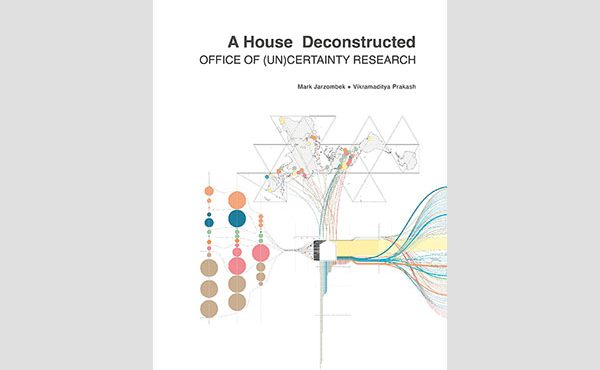
Vancouver’s former Mayor Kennedy Stewart might’ve called the Broadway Plan tenant protections the “strongest” in Canada, but tenants say it’s important to know your rights as redevelopment kicks off.
Nathaniel Gumapac, a 24-year-old nurse who chose to live in the area to be near his work at the Vancouver General Hospital, had thought he’d be protected.
It wasn’t until after he moved into his rental apartment that he learned the bad news.
City council approved the Broadway Plan back in 2022. It will densify the city’s second-largest employment centre, covering about 500 blocks, in anticipation of the upcoming subway line.
The area is also home to the city’s largest stock of purpose-built rental housing, in the form of old walk-up apartments. To limit mass evictions as these buildings come down, Council introduced an unprecedented set of protections for displaced tenants that consist of financial compensation and the right to return to a unit in the new development.
When Gumapac moved into the Plan area in August 2024, he asked a representative of his landlord about potential displacement. They said not to worry as it wouldn’t happen for several years.
As it turned out, he did not qualify for the protections. They were only for renters who had lived in their unit for a year before a rezoning application was submitted.
When Gumapac reached out to city staff, they told him that his developer-landlord had already submitted a rezoning application by the time he moved in, meaning that he was never eligible for the protections.
“I found out the hard way,” he said. “When I was doing my research on coming to Vancouver, the Broadway Plan was actually a pull factor: having things super-transitable, super-connected, not having to own a car. I was really sold on it. I’m still sold on it… It’s a bummer, to say the least.”
Pete Fry of the Greens, one of the few sitting councillors who was in office when the Broadway Plan was approved in 2022, noticed that renter data was missing from the quarterly progress reports on the Broadway Plan and asked staff to start collecting the information last fall.
The latest quarterly report from staff, shared in February, reveals exactly how many renters in the Broadway Plan qualify for the tenant protections and how many do not. (The data is dated December 2024.)
Within the existing rental units in buildings going through rezoning applications, about 85 per cent of tenancies are eligible.
About nine per cent are not.
Staff also tallied the share of rental units that have been left empty: six per cent. It is high figure considering that the Broadway Plan neighbourhoods are in high-demand, with vacancy rates of one percent in the Oak and South Granville areas and 1.8 per cent in Mount Pleasant.
“I guess that shows if you own one of these things, you don’t really want to rent them out in case you get caught having to follow through with the protections,” said Fry.
However, there are some developer-landlords whose projects are already in the applications progress — and therefore do not have to comply with the tenant protection policy — and are renting units out in buildings that sit waiting for approvals.
When asked about the vacancies, the City told The Tyee in a statement: “There may be a number of reasons why a unit is vacant — it could be that building owners, knowing of their intention to redevelop, may choose to keep a unit vacant if a tenant decides to move out or they may offer a mutual agreement to end tenancy, both of which are legal under the Residential Tenancy Act (RTA). We take concerns about illegal evictions seriously and are working proactively to inform renters of their rights through a number of channels.”
The City added that it would be keeping an eye on the tenancy data for trends.
Keeping units vacant when they could be rented out is costly, especially if landlords are waiting for permits for years, explained the City. And regardless of whether the units are being rented out or not, developer-landlords will still have to replace the number of rental units they demolish and ensure that 20 per cent of their projects include below-market rental.
On one hand, renting out units in soon-to-be-demolished buildings creates housing for people like Gumapac, said Fry. But on the other, those tenants don’t know how long they might be able to stay.
Where should protections end?
The Vancouver Tenants Union told The Tyee that the situation is frustrating for renters who know they’re going to be evicted, but are waiting with uncertainty because development permits take a long time to progress.
For example, someone like Gumapac, who doesn’t qualify for the protections because they hadn’t lived a year in their rental before a rezoning application, could potentially be living in their unit for years.
Fry says one potential way to remedy this is to require that one year of residency be before the development permit rather than the rezoning application. But that would be a big change to the policy and could potentially affect the viability of developers’ projects as is.
One thing he’ll be looking out for as city staff continue to monitor the Plan area is how long tenants like Gumapac are actually staying.
“I think the duration of the tenancy for sure needs to be acknowledged,” Fry said.
The ABC party under Mayor Ken Sim currently holds a council majority. Coun. Mike Klassen of the party was not in office when the Broadway Plan was approved, but is supportive of the work of his predecessors.
“I’m really happy that we have this policy,” he said. “It does serve to make sure that people are protected. It also makes us a little more comfortable with the decisions that we have to make that potentially could affect and create displacement.”
Plus, it prevents displacement from happening all at once in an area with a high population of renters.
“It does serve as a bit of a throttle on the pace of change. Because this is a high bar, it makes it really incumbent upon a developer to make sure people are protected with additional accommodation if they require it.”
Projects that move from the application to approval stage appear to have a higher percentage of ineligible tenants.
In Gumapac’s 1978 building, which just had its rezoning approved, 17 per cent of the 53 tenancies are ineligible for protections, according to a city report.
The Tyee analyzed the 18 Broadway Plan projects on the city’s rezoning website that were marked as approved and found that an average of 16 per cent of tenants in those buildings are ineligible.
The city was not able to comment on this number, referring The Tyee to the data from the quarterly memo instead. But both councillors shared that it might appear that developer-landlords are taking on more unprotected tenants like Gumapac, tipping the balance away from the share of older, protected tenancies.
Klassen’s take on the one-year cutoff is that it strikes a balance: “Use the housing as long as possible, make the project viable and get all that new market rental and low-market rental built as fast as possible.”
Fry’s take is that it does have to be cut off at some point: “They’re still protected under the tenancy act clauses and that gives you three months’ [notice]. Though I recognize that’s cold comfort to somebody who just moved into a place.”
Knowing tenant rights
Gumapac did not have a rental lined up before he decided to move from Ontario to Vancouver.
The search was difficult, and he conducted it remotely. He encountered numerous scams when replying to listings, asked by landlords to put down $100 to secure his eligibility.
At the last minute, the listing came up for a renovated 1970s unit in Mount Pleasant for $2,500 a month. He decided to go for it.
When he arrived, it turned out not to have been renovated, with old brown carpet and broken cupboards. The agent offered it to him for $600 less.
“I was in a state of stress and possibly desperation,” he said. “But this was too good of a deal for me to pass up.”
He still thinks it’s a “unicorn” of a deal and has done some repairs to improve the unit.
“We’ve made it a home despite what we walked into,” said Gumapac. “We don’t intend on moving out until it gets taken down because I need to save money for when I inevitably get subjected to market rent.”
He’s understanding about his situation despite the uncertainty, but wishes the city’s policy were worded more clearly.
Coun. Fry thinks so too, which is why he championed the creation of a city renter office back in 2018. He says it was an important service as it was specific to Vancouver and staff would be familiar with the municipality’s policies.
It was scrapped by the ABC-majority council in 2023. In defence of the decision, Coun. Klassen said that the office received an average of one call a day and had seven full-time staff. Instead, he suggested tenants turn to other organizations like the Tenant Resource & Advisory Centre which receives city funding.
Cecile Reveaux, a spokesperson for the Mount Pleasant chapter of the Vancouver Tenants Union, says that the high percentage of vacancies in these soon-to-be-developed buildings is indeed “alarming” and stresses that renters must know their rights and stay vigilant.
She says the organization’s members have experienced landlord harassment and threats, fraudulent evictions, building disrepair, utility disconnections, and attempts to get tenants on below-market rents to pay fees elsewhere, such as through parking increases. Also, renters have also encountered relocation specialists hired by the landlord-developer who introduced themselves as neutral parties.
Are these conditions living up to what was described as the “strongest renter protections in Canada?”
Klassen points to a review of the tenant protections coming up in 2026.
“A lot of projects are coming to us right now and we’re definitely hearing from all sides,” he said. “So let’s see how it goes. I think we have an opportunity to see if it’s working, and if it’s not, we have a chance to review policy.”
***
Christopher Cheung is a reporter at The Tyee, where this story originally appeared.




